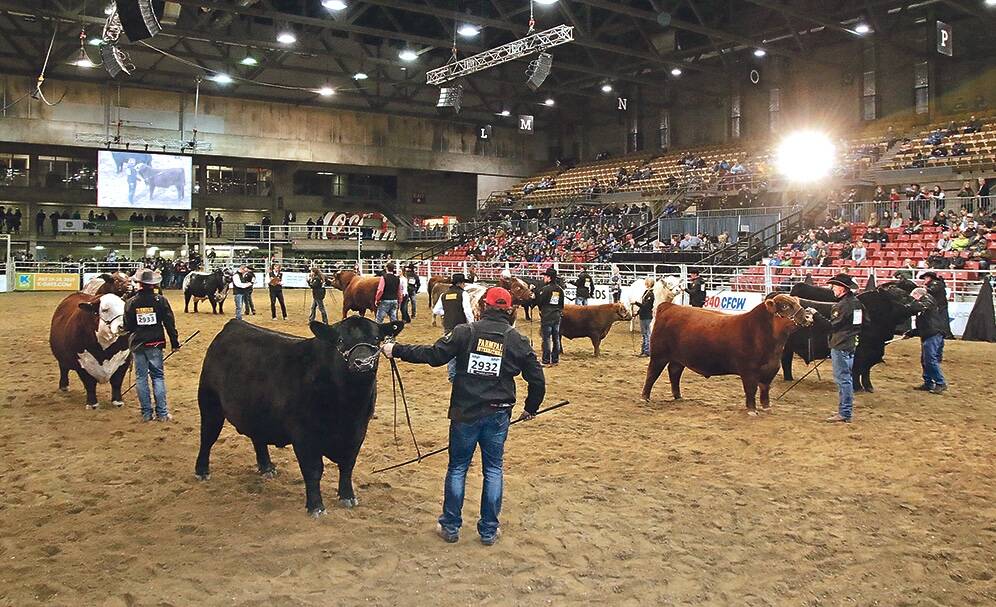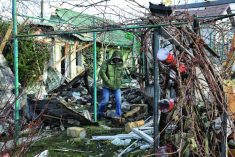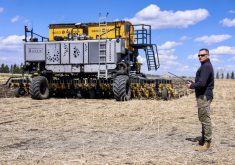Glacier FarmMedia – When we first heard the sounds of rocket explosions on Feb. 24, we were most alarmed.
It took my entire credit card limit to fill up my car and buy a supply of groceries. At the time, I thought only a few hours remained until the end of normal life.
Many Ukrainian farmers say the same thing. In the war’s early days, some of them simply distributed milk, eggs and flour to people on the street. These products had nowhere to go because the logistics were broken. Farmers almost resigned themselves to the fact that their business would be destroyed, so they tried to feed their fellow countrymen.
Read Also

Farmfair International boosts accessibility with weekend schedule shift
Farmfair International is changing its scheduling format to include the weekend and hopefully attract even more attendees.
I also talked to farmers two months ago, when grain exports were completely blocked. Most of them predicted their own bankruptcy and said many fields would remain unsown. It seemed there was no way out and none in the future.
I can’t say now that everything is fine in Ukraine and in agriculture. This is by no means the case. But I see how many people, including farmers, have managed to adapt to these difficult conditions. Broken business ties and a devastated economy are gradually being restored and farmers are finding new ways to survive.
It sounds a little harsh, but war is a great way to test the strength of a business. What will you do when some of your employees go abroad as refugees, some go into the army and the rest look to you for leadership and guidance?
What will you do if all your earnings come from the sale of grain and those sales are impossible? What will you do if you cannot buy fuel and pesticides, if service mechanics are not working and you cannot repair a tractor in the field?
These are the problems that suddenly faced Ukrainian farmers and the entire agriculture industry.

As I write this in early September, it’s been 200 days since the invasion and I have seen farmers and industry move past the initial shock and build a new way of doing business. The winners are those who created a reliable base in time, and who always fulfilled their obligations in peacetime, and therefore can be trusted with a loan or aid in wartime.
One major change has been a transition into more animal husbandry, and especially pig production. This is a business that allows farmers to make a profit by using grain they cannot sell or ship. There’s also been expansion in the production of flour, cereal foods, sunflower oil, animal feed and other products. If you rely solely on the sale of grain, you are at great economic risk in this war.
Now it is getting easier to sell crops. A few days ago, I spoke with a farmer who, three months ago, said he was offered just US$70 a tonne for wheat. Now the same buyer wants to buy that wheat for $200 a tonne. It’s still a low price, but the market has picked up.
Farmers can sell at least a small part of the harvest and see an increase in grain income, and hope to grow the next crop. After all, almost every one of them has several thousand tons of unsold wheat and corn in storage.
The long-forgotten concept in Ukraine of fallow land is returning to the fields. It used to be nonsense. Everyone wanted to sow every piece of land to make a profit. Now, when there is no money for mineral fertilizers, people are thinking about other ways to increase soil fertility.
I repeat that the situation is not as good as we would like it to be — but people do not stand still. They look for ways to survive and often find them, especially since winter is coming.
Winter in Ukraine can be as cold and snowy as in Canada. Every year it’s a lottery, so we always carefully prepare for winter.
Unfortunately, this year is special. Will there will be natural gas in the pipes and will electricity be supplied? There are no problems now with this, but there are fears that in November-December, the enemy will hit electrical substations and gas distribution units with missiles. Therefore, the price of firewood is now very high. I managed to buy a truckload of firewood cheaply and I constantly look at offers to buy another batch of fuel.
My friend bought a gas-powered generator and is about to install an electric heater. Others are looking for compact camping stoves on which to cook food.
In short, Ukrainians are preparing for winter, including those whose houses have been hit by shelling. Hundreds of thousands of our compatriots have no roof over their heads. They were forced to flee to the western regions of Ukraine or abroad, or risk staying in dilapidated houses under constant threat of shelling.
All the farmers I know are getting ready for winter in almost the usual way. Land, animals and technology require the same attention in wartime. People work in the fields, repair equipment, feed animals and prepare new storage facilities for grain.
As I suspected, no one will leave crop in the field. Farmers will collect everything possible
with their combines; then clean, dry and fill makeshift storage facilities. Old farms, warehouses and garages are all being cleaned, disinfected and turned into grain elevators. Where there are no premises, people use long plastic grain bags. The grain won’t go to waste.
Our good mood depends on one main thing. Every day we listen to information from the front, as our ancestors did during the Second World War, as our troops mount a counter-offensive. Every destroyed enemy warehouse, every tank, every liberated village is an incredible feast for the soul.
Yet these feelings are also difficult because of our dead and wounded soldiers. Two weeks ago, I attended the funeral of a soldier with whom I studied in kindergarten.
But we have no other choice. The enemy has faltered, he is stuck and not confident in his abilities. If we let him recover, he will start attacking again. Our men and women in military uniform are risking their lives so that all people can live, and I am sure they are protecting more than Ukraine.
— Ihor Pavliuk is an agricultural journalist working in Ukraine. His article was originally published at the Manitoba Co-operator.















